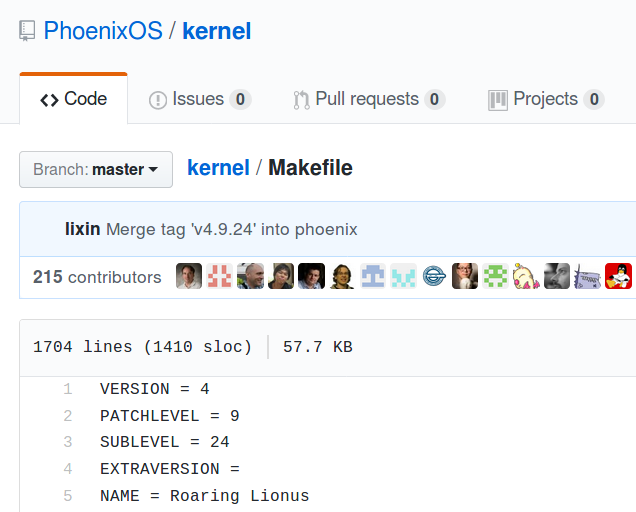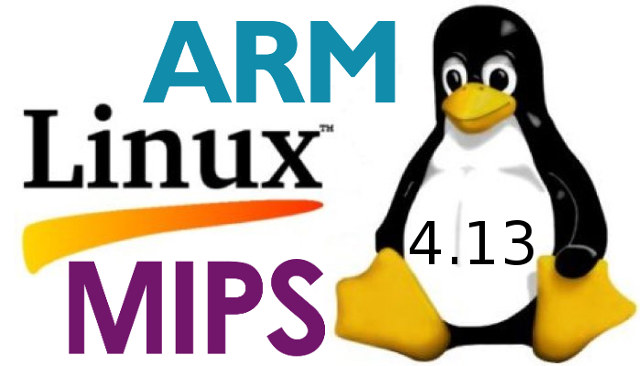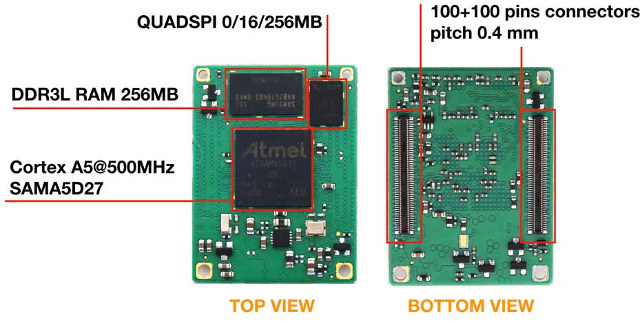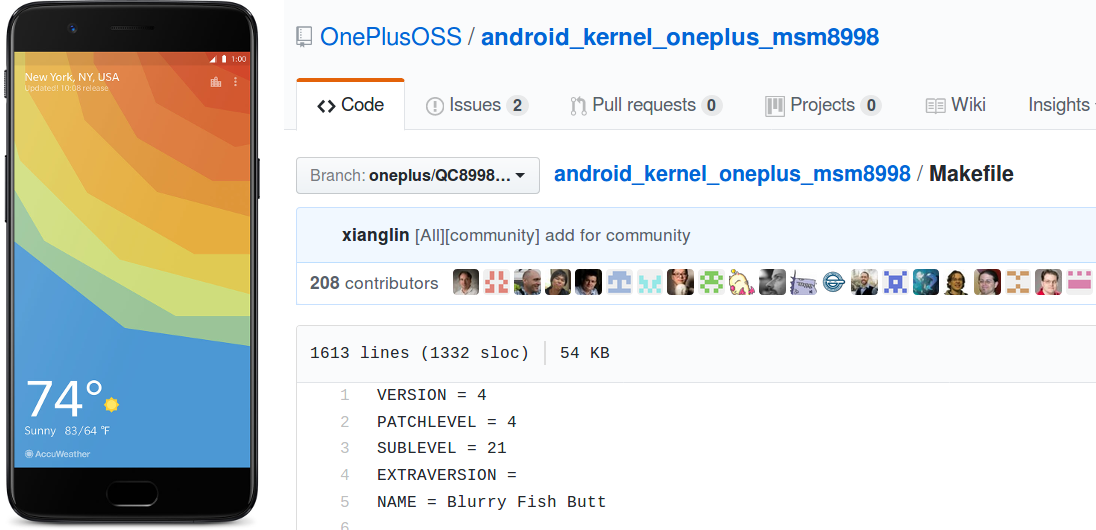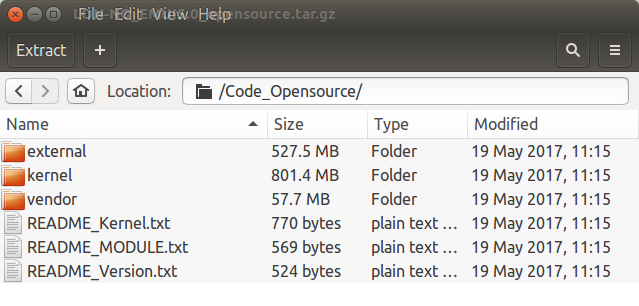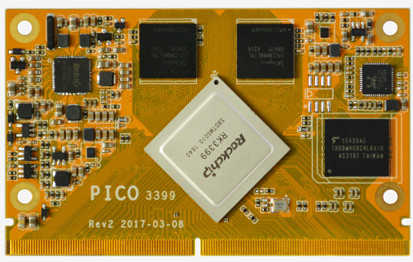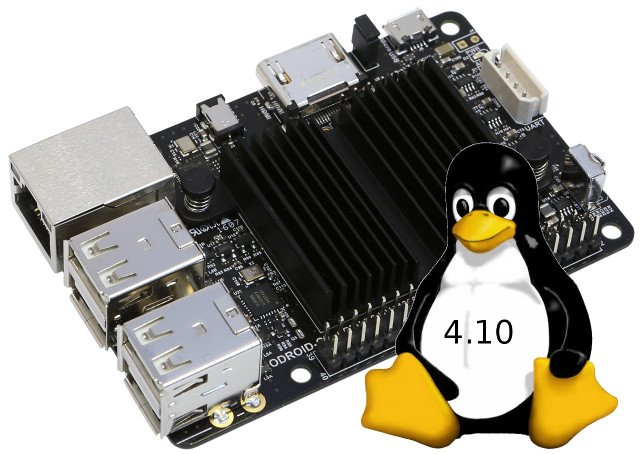Phoenix OS is one of the last options left for people wanting to run Android with desktop optimizations on their computer. The problem is that so far, it was fully closed source, and the company refused to comply with the Linux kernel’s GPLv2 license, despite part of the project being based on Android-x86 work. The community also wanted to get involved to improve hardware compatibility with graphics cards, wireless modules / dongles, and other peripherals. However, without source code, nothing could be done, and a petition was launched on Change.org asking Chaozhuo, the company behind the project, to release the Linux kernel code. After over 300 signatures was reached in the petition, the company did push Linux 4.9.24 to Github, and after verifying there was indeed some changes compared to Android x86 kernel, the community declared victory. They are however trying to make the company develop the kernel in the […]
Linux 4.13 Release – Main Changes, ARM & MIPS Architectures
Linus Torvalds has just announced the release of Linux 4.13 and a kidney stone…: So last week was actually somewhat eventful, but not enough to push me to delay 4.13. Most of the changes since rc7 are actually networking fixes, the bulk of them to various drivers. With apologies to the authors of said patches, they don’t look all that interesting (which is definitely exactly what you want just before a release). Details in the appended shortlog. Note that the shortlog below is obviously only since rc7 – the _full_4.13 log is much too big to post and nobody sane would read it. So if you’re interested in all the rest of it, get the git tree and limit the logs to the files you are interested in if you crave details. No, the excitement was largely in the mmu notification layer, where we had a fairly last-minute regression and […]
Acme Systems Introduces RoadRunner Microchip SAMA5D21 Cortex-A5 SoM and Berta D2 Evaluation Board
Acme Systems has been designing compact and relatively inexpensive systems-on-module based on Atmel (now Microchip) processor such as their Aria G25 or Arietta G25 modules. The company has now launched RoadRunner system-on-module (SoM) powered by Microchip SAMA5D21 Cortex A5 processor, as well as the corresponding Berta D2 development kit to get started with the SoM. RoadRunner (D2) SoM specifications: SoC – Microchip SAMA5D27 ARM Cortex A5 processor @ 500MHz System Memory – 256 MB DDR3L RAM Storage – 16 MByte QSPI flash memory (optionally none, 128 MB or 256 MB) Board to Board Connectors – 2x 100-pin connectors pitch 0.4 mm with all the CPU signals Power Supply – 3.3V DC Dimensions – 40 x 30 x 3.5mm Weight- 5g Temperature Range – -40° to +85°C RoHS compliant The module is said to be “fully supported inside the Linux Kernel main stream” with “all the kernel drivers are fully open […]
Linux 4.12 Release – Main Changes, ARM & MIPS Architectures
Linus Torvalds has just released Linux 4.12: Things were quite calm this week, so I really didn’t have any real reason to delay the 4.12 release. As mentioned over the various rc announcements, 4.12 is one of the bigger releases historically, and I think only 4.9 ends up having had more commits. And 4.9 was big at least partly because Greg announced it was an LTS kernel. But 4.12 is just plain big. There’s also nothing particularly odd going on in the tree – it’s all just normal development, just more of it that usual. The shortlog below is obviously just the minor changes since rc7 – the whole 4.12 shortlog is much too large to post. In the diff department, 4.12 is also very big, although the reason there isn’t just that there’s a lot of development, we have the added bulk of a lot of new header files […]
OnePlus 5 Smartphone Linux Kernel & Android Source Code Released
OnePlus 5 is a premium smartphone powered by a Qualcomm Snapdragon 835, 6 to 8 GB LPDDR4x RAM, 64 to 128 GB UFS 2.0 storage and a 5.5″ Full HD display, as well as the usual LTE, WiFi, Bluetooth, GPS.. connectivity. It was launched yesterday for $479 with 6GB RAM/64GB storage, $539 with 8GB RAM/128GB storage, and today, I’ve just read on XDA developers that the company had already released the source code for the phone. Beside the official Google Nexus/Pixel smartphones, many manufacturers will drag their feet before they eventually open the source code that they are legally required to release. Some companies will release the source code as tarballs, which works, but OnePlus has done better with Linux 4.4.21 source code available on Github. You should also be able to get the Android 7.1 Nougat source code as indicated here:
|
1 2 |
repo init -u git://github.com/OnePlusOSS/android.git -b oneplus/QC8998_N_7.1 repo sync |
The source code should lead to improvements […]
Open Source Code Released for Hisilicon Kirin 960 Based Huawei Mate 9 and Huawei P10 Smartphones
Manufacturers of products using open source software are normally required to release the source code with their modifications to follow licenses such as the GPL, but not all comply with the license. Huawei has now released the source code with Linux and other open source libraries and programs for their Huawei Mate 9 / Mate 9 Pro and Huawei P10 / P10 Plus models powered by Hisilicon Kirin 960 processor. With the release of Hikey 960 development board most of the source code for Kirin 960 should already be available, but it’s possible some drivers/modules specific to Huawei phones may be found instead of in the Huawei release. You’ll find the download in Huawei’s open source page for: Huawei Mate 9 (MHA) / Mate 9 Pro (LON) – Link to downloads Huawei P10 (Victoria) / P10 Plus (Vicky) – Link to downloads I picked up the LON-NG_EMUI5.0_opensource.tar.gz tarball for Mate […]
Boardcon Introduces Rockchip RK3399 PICO3399 CPU Module and EM3399 Baseboard
There’s a limited number of boards based on Rockchip RK3399 processor, with the easiest to work with (for non-Chinese readers) probably being Firefly-RK3399. Shenzhen Xunlong is working on their own Orange Pi RK3399 board, 9Tripod released their X3399 SoM and devkit, Boardcon has also launched their own RK3399 SoM (system-on-module) and baseboard solution with respectively PICO3399 CPU module and EM3399 board. PICO3399 SoM specifications: SoC – Rockchip RK3399 hexa core processor with a dual ARM Cortex-A72 core cluster @ up to 2.0 GHz, quad ARM Cortex-A53 cluster, and ARM Mali-T860MP4 GPU System Memory – 4GB LPDDR3 Storage – 8GB eMMC flash 314-pin edge connector with 2x USB2.0 Host, 2x USB3.0 or 2x Type-C, UART, MIPI, GbE, HDMI in&out, Audio, I2C, I2S, PCI-E, SD/MMC/SDIO, GPIO, eDP.. Power Supply – 5V Dimensions – 82 x 50mm (8 layers) The company provides support for Android6.0.1 and Debian for the module. If the info […]
ODROID-C2 Board Gets Experimental Ubuntu 16.04 Armbian Images with Linux 4.10
Hardkernel is doing a good job at providing working images with GPU / VPU support, and documentation for their ODROID boards. But while Exynos based ODROID-XU4(Q) boards already get firmware images with a recent Linux 4.9 kernel, Amlogic S905 based ODROID-C2 board’s Ubuntu 16.04 images still rely on the Linux 3.14 kernel released by Amlogic, plus various patchsets. But we’ve seen BayLibre is working on a Linux mainline port for Amlogic processors, and Armbian community appears to have leveraged that work, and added Ubuntu 16.04 Server and Desktop images with Linux 4.10 to their build system. Those are experimental nightly builds so they may not have been tested, and it’s likely not working as well as the Ubuntu 16.04 “legacy” images released by Hardkernel. They are also not shown in Armbian ODROID-C2 page at the time of writing, but it’s a step in the right direction. Jean-Luc Aufranc (CNXSoft)Jean-Luc started […]


